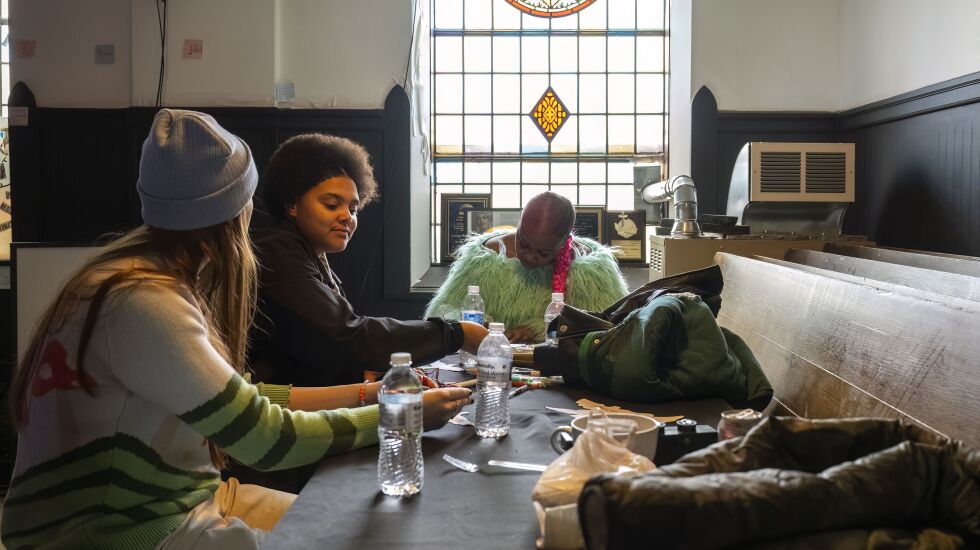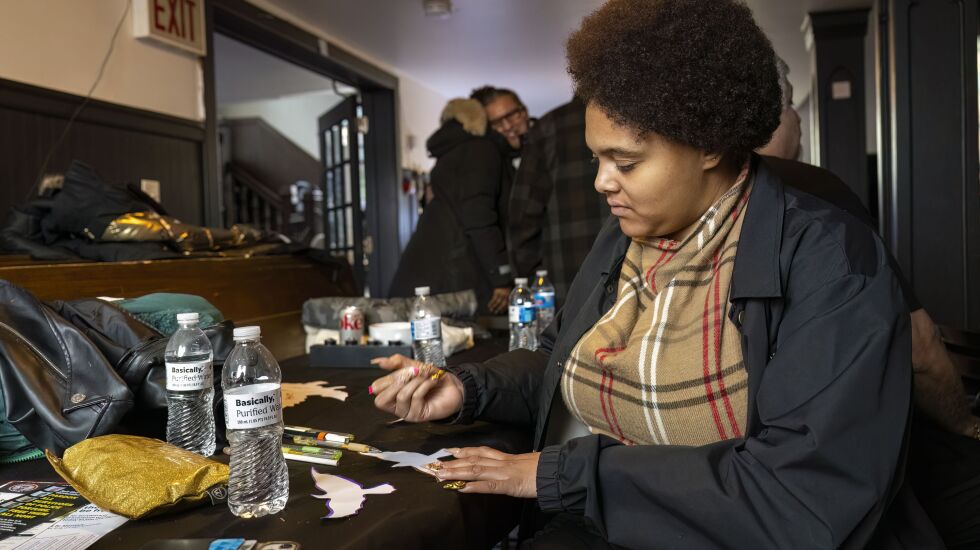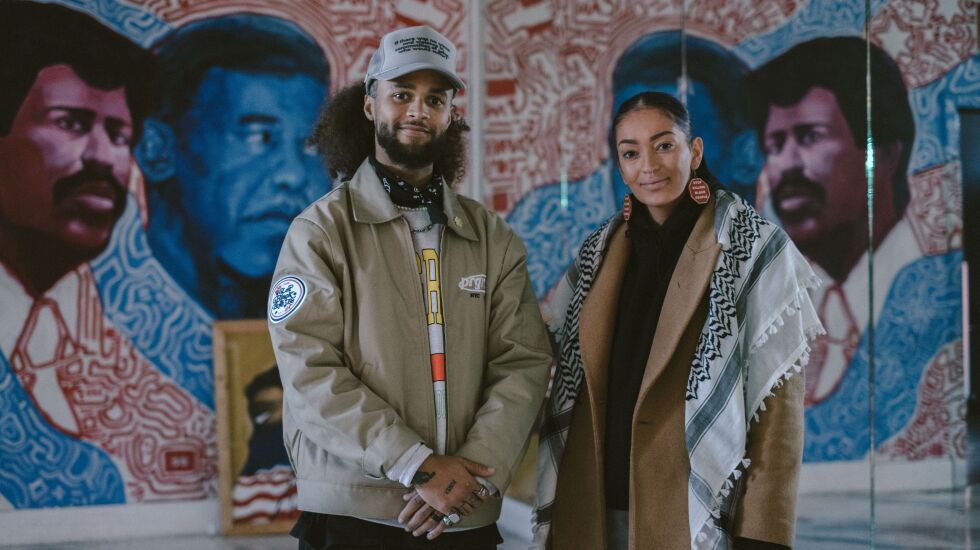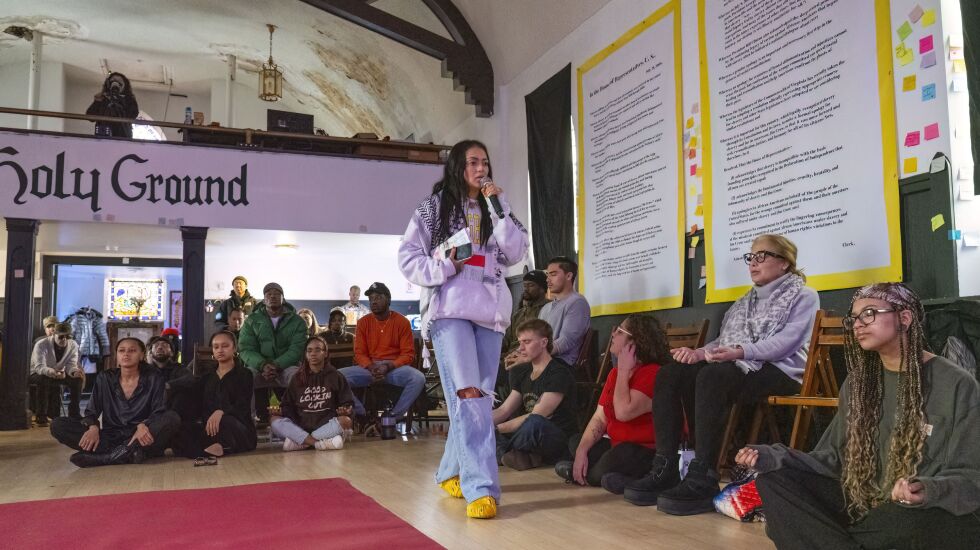
Budding singer-songwriter Tishjá Harvey credits Healthy Hood Chicago, a Pilsen-based nonprofit that works with youth in the city, with helping her produce her first single, “Star.”
“Do you know that you’re on a mission?” Harvey, who performs as Tishjá D, sings on the track. She released the single in July, and dedicated it to young people like herself. Later in the song, she speaks directly to those same people, saying, “You are the future.”
Without the resources at Healthy Hood and KNVS House, the organization’s arts and culture wing, “I wouldn’t have been able to have released it in the way I did,” Harvey, 24, told the Sun-Times.

Helping people such as Harvey is partly why Healthy Hood has been awarded a $150,000 grant from the Lewis Prize for Music, a philanthropic organization dedicated to music education. Called an Infusion Award, the grants were given to groups across the country that were selected as finalists for the Lewis Prize’s $500,000 Accelerator Awards.
Though Healthy Hood didn’t win one of the top prizes, the award is recognition for the work it does for its community.
“These programs prove that when young people’s artistry, cultural heritage and leadership are nurtured by caring and committed adults, everyone benefits,” Dalouge Smith, CEO of the Lewis Prize for Music, said in a statement.
“The Lewis Prize, I believe, ended up awarding us the award because [music] is so ingrained in everything that we do, and you can’t talk about any one aspect of what we do isolated from the rest,” Healthy Hood co-founder Tanya Lozano said.
Founded in 2014, Healthy Hood is headquartered at the Lincoln United Methodist Church, 2242 S. Damen Ave. The organization aims to take a holistic approach to addressing the stark disparities that impact the lives of young people on Chicago’s South and West sides.

A 2019 New York University School of Medicine study found a 30-year life expectancy gap between Chicagoans living downtown in Streeterville and those living in Englewood. It was the worst such gap in the nation at the time, outstripping those found in major cities such as Washington, D.C., and New York.
Lozano, a community activist and reverend at the Pilsen church, insists that the arts, health education, and political awareness can help close that gap and lead to better outcomes. To that end, Healthy Hood offers an array of classes mainly for those ages 16 to 24, from $5 meditation, dance and workout classes to free panels with former Black Panther members and sessions about South African apartheid. It also offers programming for kids ages 5 and older.

Helping community members express themselves through music plays a large role in Healthy Hood’s efforts. The grant money, to be distributed over the next three years, will be used to revamp the church, which Lozano said is one of the oldest buildings in the neighborhood. With an improved staging area and new studio equipment, she hopes to make it a more established venue for local artists such as Harvey to perform.
“Music is a part of how we take a cultural approach to changing conditions in underserved communities of Chicago,” Lozano said.
“I think that’s ... the most important part of the political education, or any of the education, that they get here, is being able to use that in the community,” said Allen Washington, Healthy Hood’s chairman and the head of its arts and culture department.
Washington founded KNVS — pronounced “canvas” — House in 2017 as a way of fostering young artists’ creativity. He and Lozano, now a married couple, saw they had only slightly different approaches to the same mission, and the two organizations merged in 2022.
Friends invited Harvey to KNVS House in 2019, and she quickly fell in love with the organization. She’d wanted to pursue music since age 10, and KNVS connected her with audio engineers and producers and gave her a stage to perform.
Harvey became the event coordinator for Healthy Hood last year. She said she and other community members have “really created another family within the walls” there. The impact Lozano and Washington have had on her — helping her develop an understanding of Black history and her identity as a biracial Black woman — was what inspired her to write “Star” in the first place.
“I just wanted to make something that made me feel good, as well as others, especially kids and people of the community,” she said.
Harvey plans on releasing new music in the coming year, though she says the details are a “surprise.” She’s looking forward to the improvements at the church, and would like to take part in Healthy Hood introducing other young artists, too.
In the meantime, she’s keeping a key lesson Healthy Hood taught her in mind — that she needn’t leave her corner of Chicago behind to strike it big.
“This is our community and I get to perform for our community,” she said. “And I find that really special.”







